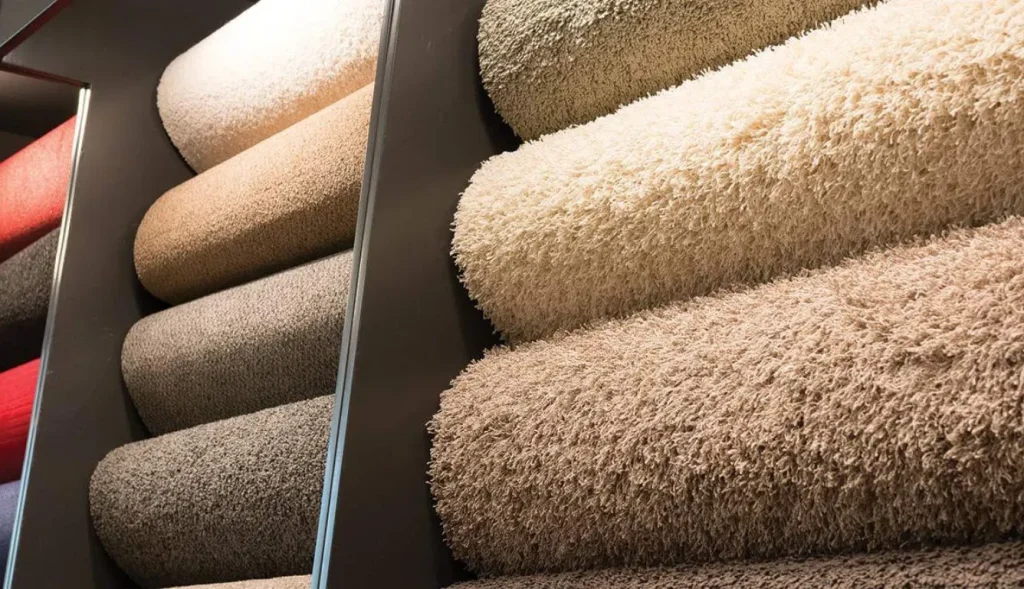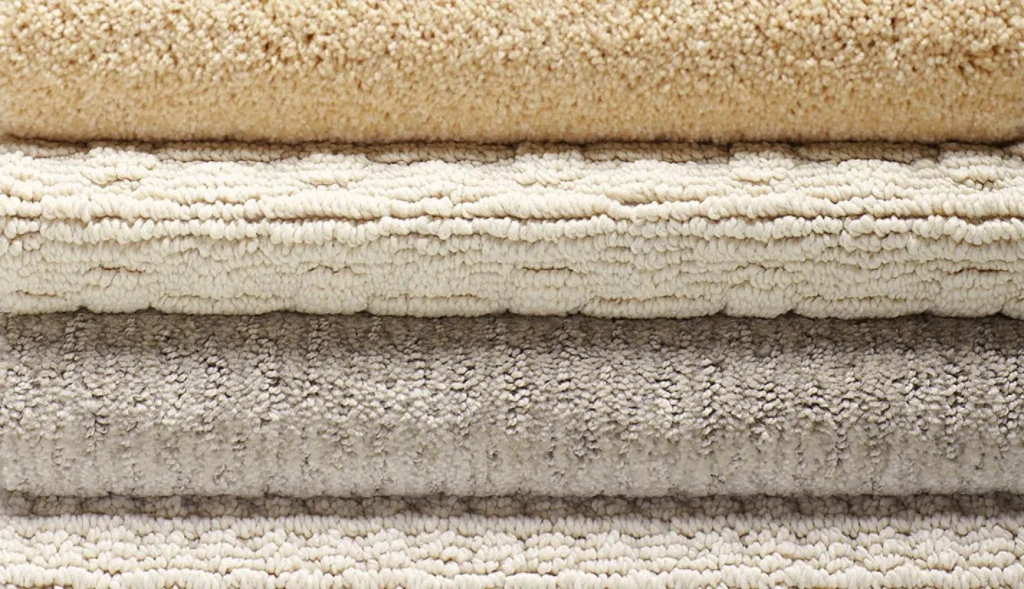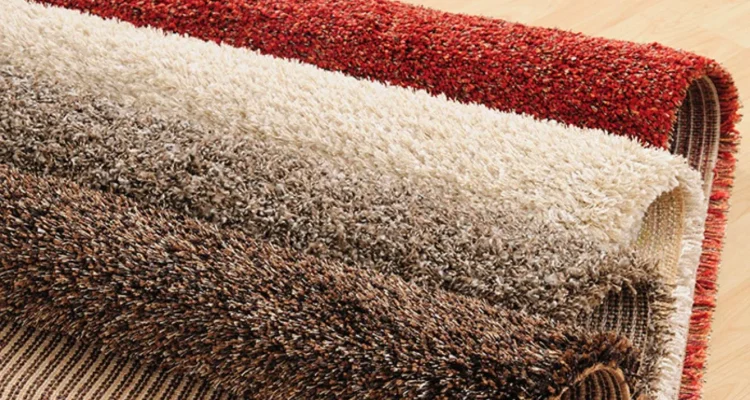Introduction to Carpet Pile
When it comes to choosing a carpet, one of the most important factors to consider is the carpet pile. But what exactly is carpet pile? Simply put, it’s the surface or the texture of the carpet—the way the fibers are woven or cut to create the finish. In this article, we’ll delve into the different types of carpet pile, their benefits, and how to choose the right one for your home.

Defining Carpet Pile
Carpet pile refers to the fabric loops that form the surface of the carpet. These loops can either be left intact or cut at different lengths to create a variety of textures and feels.
The Importance of Carpet Pile
Carpet pile is more than just about looks; it greatly impacts the comfort, feel, and functionality of your carpet. It determines how plush or firm the carpet feels underfoot, how easy it is to clean, and how durable it is.
How Carpet Pile Affects Comfort and Durability
Shorter piles often result in firmer, more durable carpets that are easier to maintain, making them great for high-traffic areas. On the other hand, longer piles can create a softer, more luxurious feel, but they may require more maintenance to keep looking good.
Types of Carpet Pile
Carpet piles are generally categorized into three main types: cut pile, loop pile, and a combination of both. Each offers a unique texture and look.
Cut Pile Carpets
Cut pile carpets are made by cutting the loops of the fibers. This process creates a soft, plush texture.
Plush Pile
This type of cut pile has a smooth and even surface. It’s highly popular for formal spaces, offering a velvety texture.
Saxony Pile
Saxony pile is a little less formal but still soft and elegant. The fibers stand straight and are more resilient, making it a great option for living rooms.
Frieze Pile
Frieze pile features twisted fibers that provide a textured appearance. It’s durable and hides footprints and vacuum marks well.
Loop Pile Carpets
Loop pile carpets leave the loops uncut, which makes them more durable and resistant to crushing.
Level Loop Pile
As the name suggests, the loops in this type of carpet are all the same height. It’s perfect for high-traffic areas like hallways.
Multi-level Loop Pile
Multi-level loop pile adds a bit of dimension to the carpet by using loops of different heights. It’s both durable and visually interesting.
Cut and Loop Pile Carpets
This type combines both cut and loop fibers, creating a textured pattern. It’s versatile and can work in both casual and formal spaces.
Carpet Pile Height
Another important aspect of carpet pile is the height, which refers to how long the carpet fibers are. There are three general categories: low, medium, and high pile.
Low Pile
Low-pile carpets are made of short fibers and are ideal for high-traffic areas because they are easier to clean and more durable.
Medium Pile
Medium pile offers a balance between comfort and durability. It works well in both living rooms and bedrooms.
High Pile
High-pile carpets, such as shag carpets, offer a plush, luxurious feel but require more upkeep to maintain their appearance.
Factors to Consider When Choosing Carpet Pile
When selecting the right carpet pile, consider your lifestyle and home’s needs.
Traffic Levels
High-traffic areas benefit from low-pile carpets due to their durability, while medium or high-pile carpets may be better for low-traffic spaces.
Maintenance and Cleaning
Low-pile carpets are generally easier to clean, while high-pile carpets may trap more dirt and allergens.
Aesthetic Preferences
The type and height of carpet pile can also affect the overall look of your space, so consider how it complements your interior design.
The Role of Carpet Pile in Home Decor
Carpet pile isn’t just about function—it plays a huge role in the aesthetic of your home.
Matching Carpet Pile to Room Usage
For formal spaces like dining rooms, plush or Saxony pile carpets may be appropriate, while a frieze pile works well in casual areas.
How Different Pile Heights Create Different Ambiances
Low-pile carpets create a sleek, minimalist look, while high-pile carpets add warmth and coziness to a room.
Carpet Pile and Indoor Air Quality
The type of carpet pile you choose can affect the air quality in your home.
Impact of Carpet Pile on Allergies
Loop piles can trap allergens more easily than cut piles. Regular cleaning is essential, especially for households with allergies.
Carpet Pile Material and Air Quality
Natural fibers like wool can be hypoallergenic, while synthetic materials might release VOCs (volatile organic compounds).
How to Care for Different Carpet Pile Types
Each type of carpet pile has its own maintenance needs.
Maintenance Tips for Cut Pile
Regular vacuuming is essential to keep cut pile carpets looking fresh and to prevent matting.
Maintenance Tips for Loop Pile
Loop pile carpets are easier to maintain but should be vacuumed with care to avoid damaging the loops.
Advantages and Disadvantages of Various Carpet Pile Types
Pros and Cons of Cut Pile
Cut pile carpets are soft and comfortable, but they can show wear more easily in high-traffic areas.
Pros and Cons of Loop Pile
Loop pile carpets are durable and great for high-traffic areas but can feel firmer underfoot.
Choosing the Right Carpet Pile for Your Lifestyle
Your lifestyle will influence which carpet pile is best for you.
Carpet Pile for Homes with Pets
Low-pile carpets are easier to clean and less likely to snag pet claws, making them ideal for pet owners.
Carpet Pile for Families with Children
For families with kids, a durable and easy-to-clean pile like a loop pile is often the best option.
Innovations in Carpet Pile Materials
Eco-friendly Pile Options
Eco-conscious homeowners can choose carpets made from natural fibers like wool or recycled materials.
Stain-resistant Pile Materials
Modern carpets often come with stain-resistant treatments that make maintenance easier.
How Carpet Pile Affects Carpet Pricing
Carpet pile can influence the price of the carpet, with plush and high-pile options generally costing more due to the materials and construction methods used.
FAQs
- What is the best carpet pile for high-traffic areas?
- Low-pile carpets are the most durable and easiest to maintain in high-traffic areas.
- Does carpet pile affect allergy sufferers?
- Yes, carpets with longer piles may trap more allergens, while low-pile options are easier to clean.
- Is loop pile better than cut pile?
- It depends on your needs. Loop pile is more durable, while cut pile is softer and more luxurious.
- Can carpet pile affect indoor air quality?
- Yes, certain materials and pile types can either trap allergens or release VOCs, impacting air quality.
- How do I maintain a high-pile carpet?
- Regular vacuuming and professional cleaning are key to maintaining high-pile carpets.

Conclusion
Carpet pile plays a crucial role in the look, feel, and performance of your carpet. Whether you’re going for a luxurious high-pile shag or a durable low-pile option, understanding the different types of carpet piles will help you make an informed choice for your home.


Congratulation!